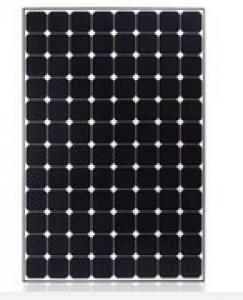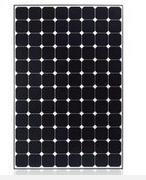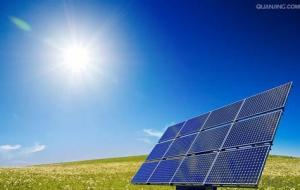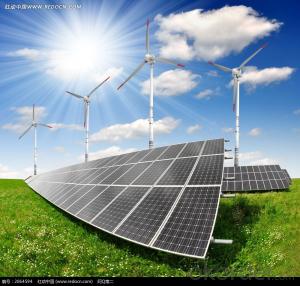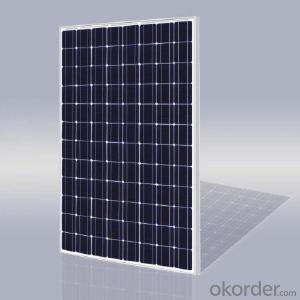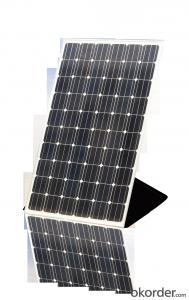Flexible Solar Panels for Boats - 250W Mono Solar Module
- Loading Port:
- China Main Port
- Payment Terms:
- TT OR LC
- Min Order Qty:
- -
- Supply Capability:
- -
OKorder Service Pledge
Quality Product, Order Online Tracking, Timely Delivery
OKorder Financial Service
Credit Rating, Credit Services, Credit Purchasing
You Might Also Like
We are in the position to supply you solar panels(20w~310w).
*Featured products in our warehouses and factory:
Poly 245w,250w (60 cells) Mono 260w -Black (60 cells)
*800MW annual production capacity with full-automatic production line
*All our solar panels are insured by CHUBB
*Bankable in Italy(Unicredit) and Australia(HSBC)
*Certificates: TUV, PV CYCLE, MCS, CE, JPEC, UL, ISO, ICIM and CEC
*Warehouses in Holland and Australia
- Q: Can solar panels be used in areas with high levels of sand or dust deposition?
- Yes, solar panels can be used in areas with high levels of sand or dust deposition. However, the accumulation of sand or dust on the surface of the panels can reduce their efficiency over time. Regular cleaning and maintenance are necessary to ensure optimal performance in such environments. Additionally, certain design features, such as tilt angles and surface coatings, can be incorporated to minimize the impact of sand or dust deposition on solar panel efficiency.
- Q: Can solar panels be installed on a parking lot or carport?
- Yes, solar panels can be installed on a parking lot or carport. In fact, this is a growing trend known as solar carports or solar parking lot canopies. These structures not only provide shade for vehicles but also generate clean and renewable energy. They are a great way to utilize unused space for solar power generation while providing additional benefits such as reducing heat island effect and offering covered parking.
- Q: If you were to be asked to write a material(s) report on either -solar panelsor -aircraft fuselageWhich would you choose?well i was asked to choose between these two,so i guess that if i choose what the majority wouldn't, i might just score a little bit higher,what do you think?if you are the lecturer you would want something different right?
- If you pick the fuselage, look up friction stir welding. It's a low temp, solid state method of joining Al. I have taken a few classes (undergrad and grad) from Dr. Reynolds. This stuff is cool!
- Q: Can solar panels be used in areas with limited sunlight?
- Yes, solar panels can still be used in areas with limited sunlight. While solar panels are most efficient in direct sunlight, they can still generate electricity even in areas with less sunlight. The panels can capture diffuse sunlight and convert it into usable energy. However, the overall energy output may be lower compared to areas with abundant sunlight. Additionally, advancements in solar technology and the use of more efficient panels can further enhance their performance in areas with limited sunlight.
- Q: Can solar panels be installed on ground-mounted structures?
- Yes, solar panels can be installed on ground-mounted structures. In fact, ground-mounted solar panel systems are a popular choice for residential, commercial, and utility-scale projects. They offer flexibility in terms of location, orientation, and scalability, making them an ideal option for areas with limited roof space or shading issues. Ground-mounted structures can be customized to optimize solar panel angles for maximum energy production and are easier to install and maintain compared to rooftop systems.
- Q: If I wanted to put some solar panels on my roof, how many would i need and how many watts would they have to be to be able to power my whole house?
- all depend to the surface of your solar panel
- Q: Can solar panels be installed on a car?
- Yes, solar panels can be installed on cars. These panels can convert sunlight into electricity, which can then be used to power various components of a car, such as the battery, air conditioning, or even the motor. Solar panels on cars are a growing trend as they offer a sustainable and renewable energy source, reducing dependency on fossil fuels and lowering carbon emissions. However, the effectiveness of solar panels on cars may vary depending on factors such as the size of the panels, the amount of sunlight available, and the energy demands of the vehicle.
- Q: Do solar panels require direct sunlight to work?
- No, solar panels do not require direct sunlight to work. They can still generate electricity from indirect sunlight or even on cloudy days.
- Q: im trying to run my house with with solar panels, is it possible? if so please let me know how....i have a 6000 w inverter
- There are a variety of factors that come into play in order for you to calculate the answer. Additionally, there are a number of variables that can make the answer change over time. The number of solar panels you need to install to power your home will depend upon your electric power demands, the weather in your area, the angle of your roof, shade issues from nearby trees or buildings and the size of the cells. All of these factors are important and must be built into your calculations so that you can create the best solution for your home and your future needs.
- Q: I would love to put in solar panels on my roof, but how hard would it be, and how expensive? Would I be able to do the work myself, or would I have to hire a pro?Also I live in Oregon, so much of the time it is overcast, so would it really be worth it?
- Not a good idea. The reason why panels are that much more expensive than cells is that the panels themselves are not that cheap either. If you start with the cells, you'll need - mechanical protection (hail, ice, snow) - electrical protection (i.e. waterproofing - if water comes in contact with the cells and wires, you'll get electrolysis which will corrode your wires and contacts faster than you can say 'b*mmer') - that setup will need to withstand temperatures between -20 and +30 °C (only guessing, might be worse) - oh, and the side facing the sun must be transparent (as far as possible) Now as to connecting the stuff: no, it will be neither easy to connect it to the house power nor to the grid - which is why that step (at least) in all countries I know of must be done by a certified electrician. If you get it wrong and you're lucky, only _your_ inverter will explode. Regarding the power: these 4W per cell (or kW for your shed) is the peak value, i.e. with the sun shining orthogonally onto the cells on a clear day. Since this (for a fixed installation) will only be true (at most) for a few minutes on a few days each year, your overall yield will be significantly less, probably more like 4 kWh/day for each clear day for each kWpeak you install _IF_ the shed roof is oriented exactly south and inclined towards the sun's noon position at the spring/autumn equinox (i.e. inclination angle = your geographical latitude). How many clear days do you have in britain? Yes, I had a similar idea for myself - but for one thing, the registered companies I addressed apparently weren't really interested in that small fry, plus the cost of the system + setup would barely have been amortized after the expected lifetime, even taking into account the (german) governmental subsidies. If I had the money to spare, I'd rather invest in a communal solar park. Much better ROI, the large installations get much better prices (per kW) for the setup.
Send your message to us
Flexible Solar Panels for Boats - 250W Mono Solar Module
- Loading Port:
- China Main Port
- Payment Terms:
- TT OR LC
- Min Order Qty:
- -
- Supply Capability:
- -
OKorder Service Pledge
Quality Product, Order Online Tracking, Timely Delivery
OKorder Financial Service
Credit Rating, Credit Services, Credit Purchasing
Similar products
Hot products
Hot Searches
Related keywords
